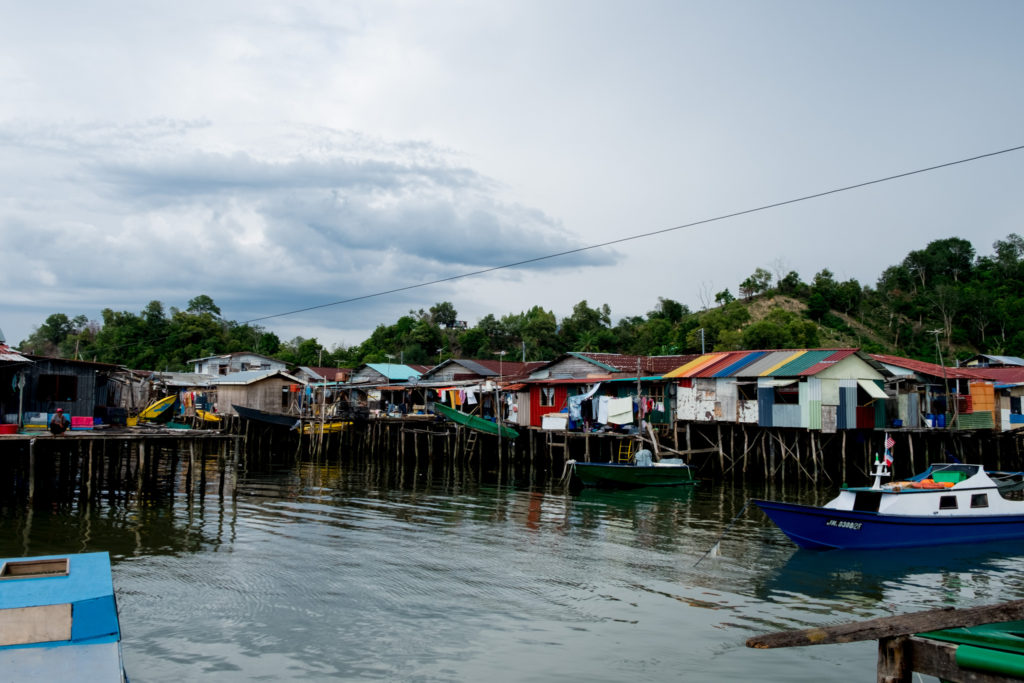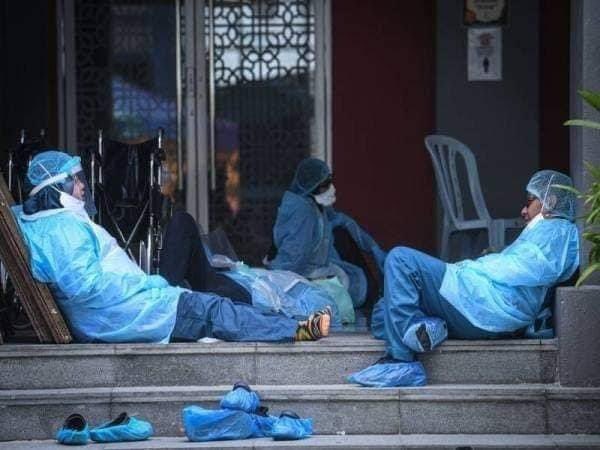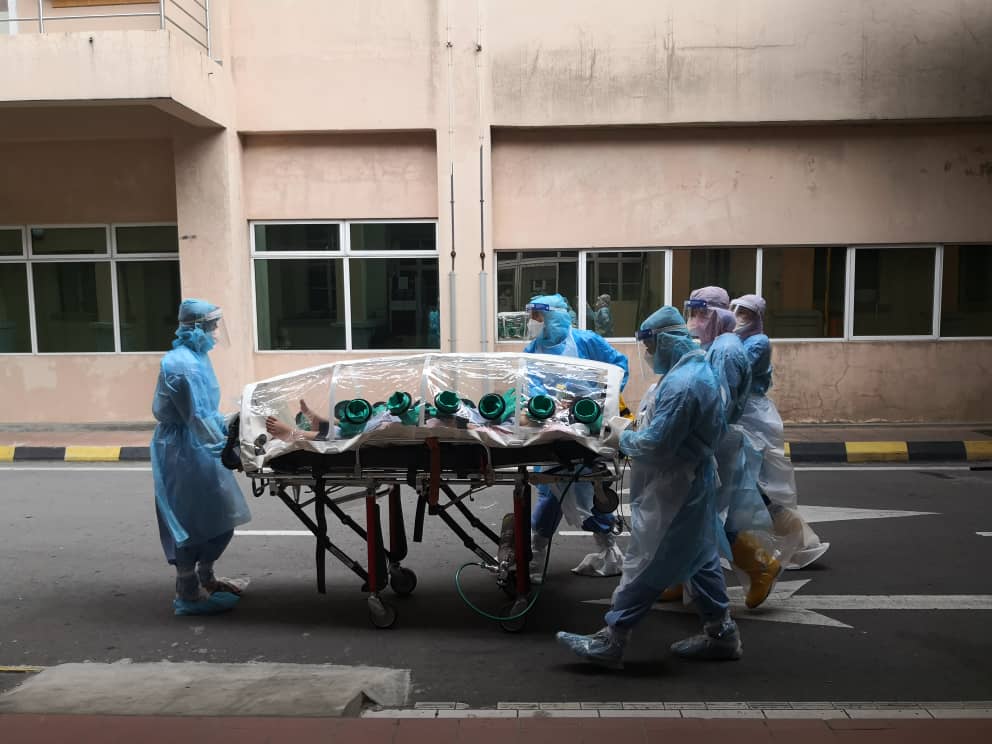Medical graduates can be placed in low-risk quarantine and treatment centres or even carry out public health activities, such as Covid-19 screening and giving public health education to communities in Sabah.
There are many fresh medical graduates who have applied for housemanship, but are waiting for their intake. In September, Health Minister Dr Adham Baba told the Dewan Negara that due to the Movement control order (MCO), medical graduates had to wait up to nine months for their housemanship intake.
Volunteering in Sabah to help fight the Covid-19 crisis will be a great opportunity for these doctors to have first-hand experience in handling an infectious disease outbreak even before their housemanship.
The Ministry of Health (MOH) has been sending volunteers to Sabah to help with the outbreak in the country’s poorest state that has been reporting three-digit Covid-19 cases every day since October 1. As described by frontliners on the ground, even the toughest doctors are on the verge of breaking down. Many of them have to work double shifts to compensate for their colleague’s working hours who get quarantined when they come into contact with positive Covid-19 cases.
MOH has posted volunteer application forms on their social media pages for health care workers from both the public and private sectors, who either want to volunteer in hospitals or in other health facilities like district health clinics or district health offices.
However, in the application form, one has to state their full medical registration number in their application form, which medical graduates don’t have yet. It was also not specified otherwise if medical graduates are allowed to apply as volunteers.
Generally, during the waiting period for housemanship, medical graduates usually take up jobs like giving tuitions, joining research programmes, working in different companies including pharmaceutical companies, working as clinic assistants, working in diagnostic labs, etc. Some even work in restaurants as waiters or provide Grab ride-hailing services, while some do volunteer work.
MOH should open up the application to medical graduates who are waiting for their housemanship to apply as volunteers in Sabah. The Malaysian Medical Council (MMC) already has the details and transcripts of medical graduates who have applied for housemanship, so those who wish to volunteer can easily apply and MOH can screen through their transcripts and carry out an interview if needed.
In the United Kingdom, medical students were allowed to volunteer in hospitals to assist during the Covid-19 crisis. They were given roles as health care assistants, supporting nurses in providing patient care. A study found that the students gained valuable experience in inter-professional collaboration.
In a survey done in the National University of Ireland, Galway, 59 per cent of medical students said they were willing to volunteer in an event of an infectious crisis. Nearly all, or 98 per cent of them, indicated altruism as a motivating factor.
MOH doesn’t have to consider getting medical students as volunteers yet, as Malaysia’s coronavirus cases are majorly reported in Sabah and there are many fresh medical graduates out there who are free and waiting for housemanship.
What Can Medical Graduates Do?

Medical graduates can be sent to help with screening and triaging patients presenting for testing. So, MOH does not have to send more nurses or other health care workers to Sabah for this task, when they can be sent to hospitals to help out with critically ill patients.
The medical graduates can also be assigned to help at the low-risk quarantine and treatment centres. They can help with checking the patient’s vital signs-pulse, blood pressure, temperature, and oxygen saturation, which is typically done four times a day.
They can also carry out testing on the ground. If hundreds of medical graduates apply for this and are sent to Sabah, the testing rates can also be increased because they can be the ones on the ground carrying out the testing. They can be the ones boosting the manpower needed to carry out mass testing.
In a way, trained doctors and nurses can focus on working in the hospitals, while medical graduates can be carrying out public health activities.
Medical graduates can be the ones going to houses or reaching out to small communities in the interiors of Sabah, like the Bajau community, to educate them about the virus, its dangers, and preventive measures that they can take, especially teaching them basic hand hygiene techniques.
Former Health deputy director-general (public health) Dr Lokman Hakim Sulaiman told CodeBlue in an interview that more engagement and empowerment needs to be done with communities in Sabah through their community leaders.
He said that there are many success stories when it comes to health empowerment, for example the significant contribution of community health volunteers in the control of malaria in Sabah ini 1990s and early 2000s where they were trained to collect blood smears on glass slides and send it to the nearest laboratory for malaria diagnosis.
Medical Graduates Can Continue Sabah’s Public Health Activities After Outbreak Settles

Gradually, Covid-19 cases are also rising in other states. Dr Mustapha Kamal from the Covid-19 response unit in Sungai Buloh, Malaysia’s main Covid-19 hospital, told CodeBlue that the hospital beds are slowly getting full with Covid-19 patients.
In the case where other states require help in terms of manpower due to the rising cases, they can easily mobilise their trained health care staff from Sabah, who are in charge of public health activities, and leave it to the medical graduates with a few overseers to continue those activities.
The medical graduates, in fact, can be given an option to volunteer for a longer period of time in Sabah, unlike trained health care staff who are given two months’ contract to work in Sabah.
Since they are placed longer in Sabah, they will be able to continue public health education to all the communities in Sabah, as the virus will still remain in the community unless everyone gets a Covid-19 vaccine.
Taking Care Of Medical Graduates

Even if medical graduates will be allowed to perform these duties as a voluntary service, MOH should give them some allowance for their expenses, as well as compensation for the risk that they are willing to take to be on the frontline.
They should be given a work schedule to follow and their mental health should also be taken care of during this time.
The medical graduates should be given personal protective equipment (PPE), a place to stay, and a simple training online or in-person on managing coronavirus infection before going to Sabah.
Medical graduates are our future leaders in the health care system. Let us not waste our resources and give them an equal opportunity to serve the nation.

Ashswita Ravindran is a medical doctor and health writer with CodeBlue.
- This is the personal opinion of the writer and does not necessarily represent the views of CodeBlue.








